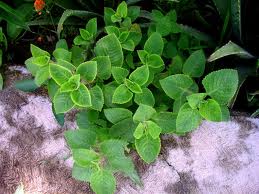Herbs as an alternative to conventional medicines.
PLEASE NOTE: This information is from mashvet.com and is not intended to replace your own veterinarian’s advice. Also please be aware that while dogs and cats may be fine with some of the herbs, SOME MAY BE TOXIC TO HORSES !! Also, some herbs may ‘test positive’ as well as are gender specific.
With the success of the health food industry and stores like Whole Foods, the access to herbs in either a tincture, fresh, bulk or in capsules is available.
Alternatives
Herbs that gradually alter an existing condition in the body by strengthening or stimulating various systems and eliminating waste from the bloodstream. For skin and coat disorders, rheumatoid conditions, cancer, and other disorders where the body may benefit from improved elimination of toxic excess and systemic waste.
Alfalfa ((Medicago sativa) Arthritis, blood disorders
Burdock ((Articum lappa) Seborrhea, pyoderma rheumatoid diseases
Red Clover( (Trifolium protense) Tumors, blood disorders
Gotu Kola (Centella asastica)) Dermatitis
Garlic (Allium Sativum) Stimulates the immune system,anticancer
Ashwaganda (Withania somnifers) ) Tumors
Turmeric (Curcuma longa) Uterine tumors
Anti-inflammatories
Herbs that reduce inflammation
Licorice (Glycyrrhiza glabra)A general anti-inflammatory for skin conditions and arthritis
Oregon grape ((Mahonia aquifolium)) Reduces inflammation of the eyes mouth, skin and other mucus membranes.
Devils Claw ((Harpagophytum procumbens)) Arthritis and general uses
Yucca ((Yucca schidgera) Joint Inflammation
Turmeric ((Curcuma longa) antiarthritic, antiflammatory in mucus membranes
Willow ((Salix spp)) post surgical ,pain arthritis, connective tissue inflammation
Antimicrobials
Herbs that inhibit reproduction and growth of harmful bacteria, fungi or protozoa
Echinacea (Echinacea spp) Especially for urinary and respiratory
Oregon grape (Mahonia aquifolium) General purpose eyes nose ear throat digestive and urinary
Calendula Mouth and skin
Sage (Salvia offincinalis) ) mouth and skin, gingivitis
Marshmallow (Althea offincinali) ) Low grade infections of the urinary tract soothing
Yarrow (Achillea Millefolium) External wounds digestive respiratory and urinary tract infections
Lavender (L. angustifolia) good for skin,pain itching and flea bites
Garlic (Allium Sativum) Antibacterial, antiviral antifungal
Astringents
Herbs that reduce inflammation of the skin, eyes and mucous membranes, treat irritable bowel and colic and tonify smooth muscles of the urinary tract and uterus.
Raspberry Leaf (Rubus idaeus) conjunctivitis, dermatitis, uterine tonic
Nettle (Utica spp)conjunctivitis,dermatitis
Plantain (Plantago major) Dermatitis gastrointestinal or urinary inflammation
Slippery elm (Ulmas fulva) GI or urinary inflammation
Comfrey (Symphytum Offcinale) Skin ,digerstive tract,respiratory
Gentian (Gentiana lutea ) Stimulates bile production and salivation
Witch Hazel (Hamamelis virginiana ) Skin swelling
Cardiovascular Tonics
Herbs that strengthen the physical integrity of the heart and blood vessels, moderate blood pressure and increase circulation.
Hawthorn (Crategus spp) strengthens cardiac output, moderated blood pressure and increases circulation throughout the body
Ginkgo (Ginkgo biloba) Improves circulation in the brain, extremities and kidneys
Cayenne (Capsicum) Improves peripheral circulation and joint circulation
Yarrow (Achillea millefolium) Improves circulation and strengthens vessel structure in the extremities
Garlic (Allium Sativum)
Carminatives
Herbs that help relieve intestinal gas and indigestion and are antispasmodic to the intestinal tract.
Fennel (Foeniculum vulgare) Dyspepsia, flatulence, colic
Dill (Anethum graveoles) Dyspepsia, flatulence, colic
Peppermint (menthe piperita) Dyspepsia, flatulence, colic
Chamomile (Matricaria recutita) Dyspepsia, flatulence, colic
Ginger (Zingiber officinale) Expels internal gas,stimulant
Demulcents
Herbs that provide a protective barrier in the digestive and urinary tracts for the passage of wastes and to help relieve irritation of mucous membranes
Marshmallow (Althea offincinali ) Respiratory, digestive and urinary irritations
Plantain (Plantago major) Respiratory, digestive and urinary irritations
Slippery elm (Ulmas fulva) Respiratory, digestive and urinary irritations
Ginkgo (Ginkgo biloba ) Respiratory, digestive and urinary irritations
Diuretics
Herbs that stimulate diuresis in kidney disorders and water retention problems and help eliminate excess waste and superfluous materials from the body and urinary tract.
Dandelion leaf (Taraxacum officinale ) the strongest herbal diuretic available
Corn Silk (Zea mays) For calculi
Parsley (petroselinum crispum) diuretic,antimicrobial
Uva-ursi (Arctostapylos uva ursi) recurrent cystitis,prostatitis,urinary antiseptic
Shepherds Purse (Capsella bursa-pastoris) Especially good for water retention secondary to rheumatoid condition
Cranberry (vaccinium macrocarpa) reduces bacterial adherence, prevention UTI
Couch Grass (Agropyron repens) urinary antiseptic,cystitis
Gravel root (Eupatorium purpureum) urinary calculus, cystitis,prostatitis
Saw palmetto (serenoa repens) prostatitis calculi
Varuna (Crataeva marvala) antiurolithic,antimicrobial bladder tone
Horsetail (Equisetum arvense) diuretic, antiflammmatory, astringent
Juniper (Juniper communis) diuretic ,cystitis, antiseptic, hepatoprotective
Kidney support
Herbs that help protect the kidney
Nettle seed (Urtica dioica)
Couch grass (Agropyron repens) broad spectrum antibiotic activity,acts as diuretic
Goldenrod (solidago spp) nephritic, strengthens kidney function
Immunotonics
Herbs that stimulate and support the immune system function
Echinacea (Echinacea spp) For early onset of bacterial or viral infections
Astragalus (Astragulas membranaceous) For bacterial and viral and good for weak functioning immune system.
Garlic (Allium Sativum)
Lymphatics
Herbs that assist with lymph production and circulation: drain an heal lymph-engorged tissues and masses (tumors,cysts,ulcers) useful in the systemic treatment of chronic dermatitis
Cleavers (Galium aparine) Digestive and urinary cysts, ulcers
Red clover (Trifolium protense) Cyst and tumors of the skin, swollen lymph nodes
Nervines and sedatives
Herbs that suppress or moderate nervous tension and anxiety or that moderate or suppress activity in higher brain centers
Skullcap (scutellaria spp) For jittery anxiety: to help reduce severity of seizures; to relieve pain
Valerian (Valeriana officinalis) For acute anxiety and hyperactivity; to help reduce severity if seizures; to relieve pain
Passionflower (passiflora incarnate) A relaxing mood elevator; for fear, for post traumatic depression, and as a good alternative for animals who unfavorably to valerian
St John’s wort (Hypericum spp) For nerve injuries
Oat straw (Avena sativa) An especially good nervous tonic for older animal
Lavender (L. angustifolia) As an aroma therapy to relax
Kava Kava (Piper methysticum) sedative ,anticonvulsive ,hypnotic
Nutritives
Herbs that lend rich nutritional values especially good for anemia and minerals deficiencies
Nettle (Utica spp) Broad-spectrum minerals, vitamin, and protein
Alfalfa (Medicago sativa) Broad-spectrum minerals, vitamin, and protein
Flaxseed (Linum) Rich source of omega-3 essential fatty acid EFAs
Dandelion leaf (Taraxacum officinale ) Broad-spectrum minerals especially potassium, vitamins and protein
Spirulina (Spirulina spp) tonic, helps with blood cleansing
Vulneraries
Herbs that promote healing , internally or externally
Aloe vera (Aloe spp) Externally for burns wound dermatitis internally for ulcers
Arnica (Arnica spp ) For external treatment of closed-tissue injuries only
Comfrey (Symphytum officinales) For external use on open and closed-tissue injuries
Calendula (Calendula officinalis) For dermatitis burns and wounds
St Johns Wort (Hypericum perforatum) For crushing soft tissue injuries and any type of trauma where nerve damage is evident
Herbs that Help Reduce Parasites
Garlic (Allium Sativum) Repelling of Fleas and Mosquitos, Expels worms
Wormwood (Artemesia absinthum) Expels worms
Yarrow (Achillea millifolium) Insect repellant, expels worms
Eucalyptus (Eucalyptus globules) Flea prevention
Fleabane (Conyza canadensis) Flea repellant
Pennyroyal (Mentha pulegium) Flea repellant
Oregano (Oreganum vulgare) Expell parasites
Feverfew (Tanacetun parthenium) Contains pyrethrins use topically
Herbs that Help the Respiratory Tract
Eucalyptus (Eucalyptus globules) Reduces inflammation of respiratory mucosa
Herbs that act as Laxatives
Senna (Cassia Angustifolia) Powerful cathartic
Cascara Sagrada (Rhamnus purshiana) Strong laxative
Aloe (aloe spp)
Yellow Dock (Rumex crispus)
Linseed oil
Castor oil
Herbs that support Liver health
Turmeric (Curcuma longa) stimulates bile production, strengthen liver function
Milk Thistle (Cardii marianus) antioxidant inhibits lipid peroxidation of hepatic microsomes, enhances immune functions, increases bile secretions,decreases prostaglandins synthesis,may orevent and treat gallstones,protects liver from hepatotoxins
Astragulas (Astragalus membranaceus) immune function
Barberry (Berberis vulgaris) inhibits endotoxins,cholagogue, increases bilirubin excretion
Oregon Grape (Berberis aquifolium)
Dandelion (Taraxacum offiiciale) contains choline,stimulates digestion and biliary function, liver tonic
Globe artichoke (Cynara scolymus ) antihepatotoxic, jaundice, hepatic insufficiency
References
1 Tilford, Gregory and Mary L. Wulff- Tilford All you Ever Wanted to Know About Herbs for Pets, Irvine California: BowTie Press 1999.
Conference Notes from 2005 Veterinary Botanical Medicine Association Spring Symposium Renewing the Spirit of Plant medicine
Barbara Fougere notes Small animal GIT Diseases Part 1+2 Materia Medica for the GI tract












Thank you so much for this Gwen! Alot of reaserch and painstaking delivery! Now maybe some suggestions on preparation and dosage… When you get a minute. Just want you to know you are a valued resource!